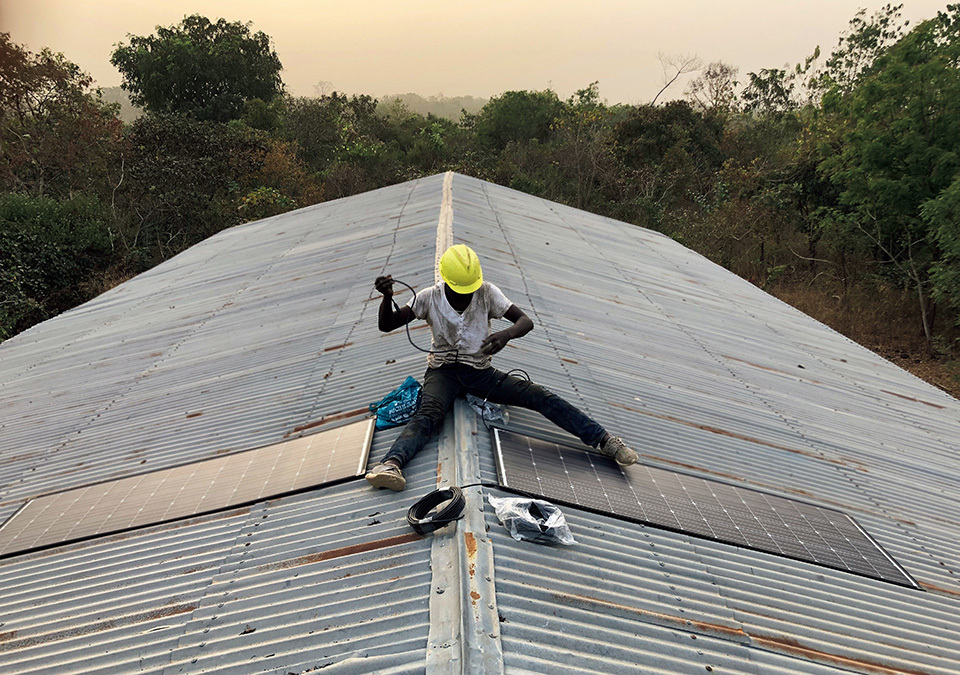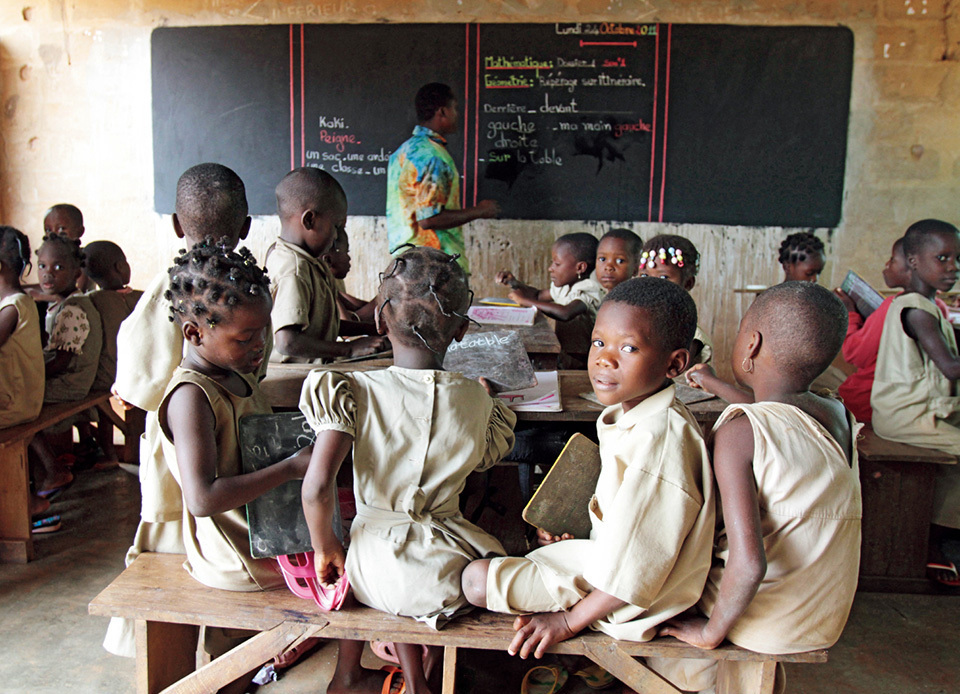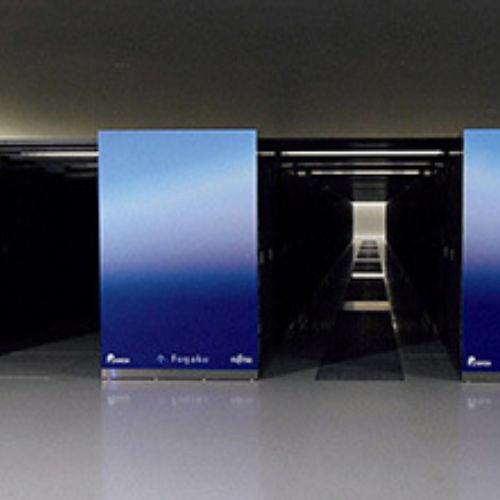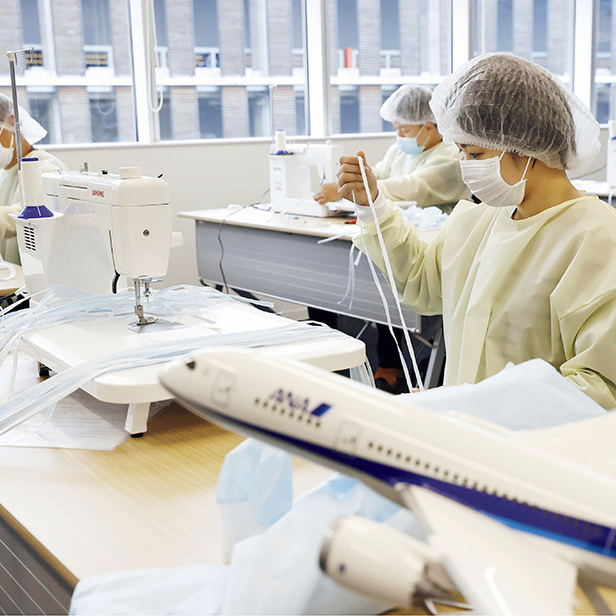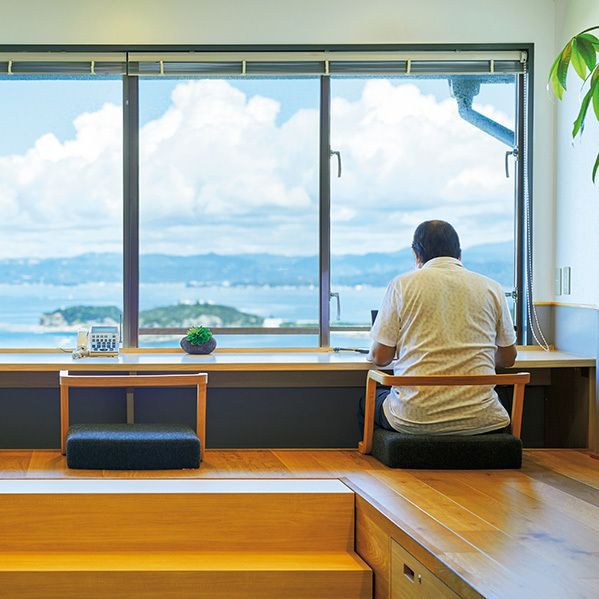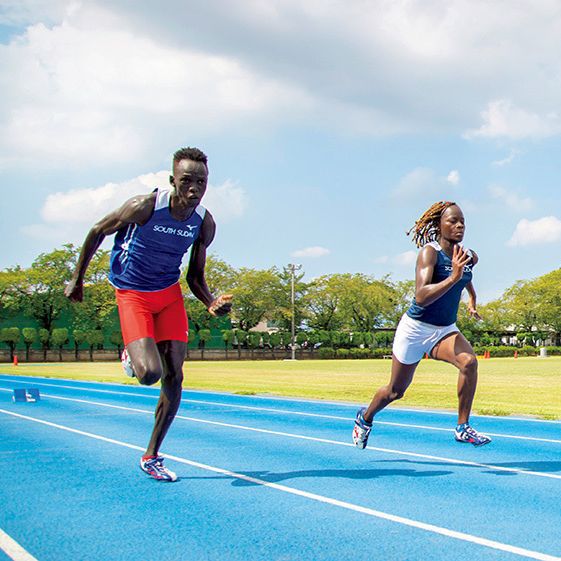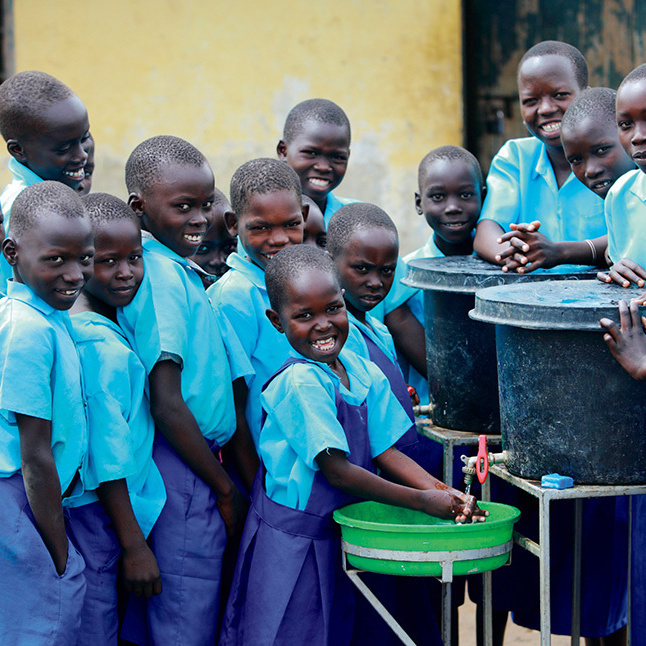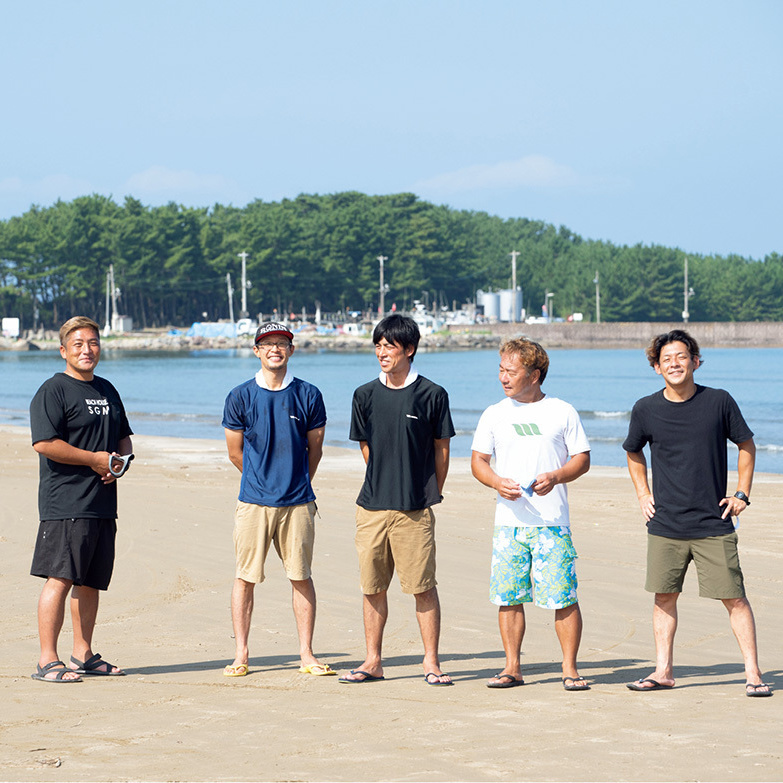Solar-powered streetlights made by a small roofing company in rural Japan now light up roads and schools in Africa. In what special way do these lights illuminate African villages without access to electricity?
In 2015, a small Japanese roof construction company installed in a Nigerian village 65 streetlights, which feature flexible solar panels wrapped around the lampposts. In conventional solar-powered streetlights, the solar panel is positioned above the light itself; however, in Africa, there is so much dry dust and sand in the air that particles soon collect on top of the panels, preventing the lights from operating. Those problems can be eliminated with special solar sheets that are easy to remove and maintain.
The thin, lightweight solar panels, branded Luz-solar, were developed by Kawaguchi Steel Industry Co., Ltd.—located in Saga Prefecture in southwestern Japan—which specializes in the design and construction of metal roofs for large-scale buildings such as factories. Its chief executive officer, KAWAGUCHI Nobuhiro, thought that his firm, rather than just take on construction work, should also develop and sell its own products, focusing its efforts on renewable energy as environmental awareness increases around the world. “As a roofing specialist, I recognized that industrial solar panels have a huge potential,” reflects Kawaguchi. “There’s no reason not to use available roof space. I believe that electricity should be generated in the places where it is used.”
However, the typical buildings and facilities are not strong enough to withstand heavy solar panels on their roofs. That is why the company, along with a solar panel manufacturer, jointly developed a thin, lightweight solar sheet, which is only 1mm thick and weighs just about one-seventh as much as regular solar panels, and thus can be flexibly installed in various spaces, even on curved surfaces. Nevertheless, the sales of the product failed to take off in Japan because the sheets were unable to be mass-produced at that time and also required costly reinforcement against typhoons.
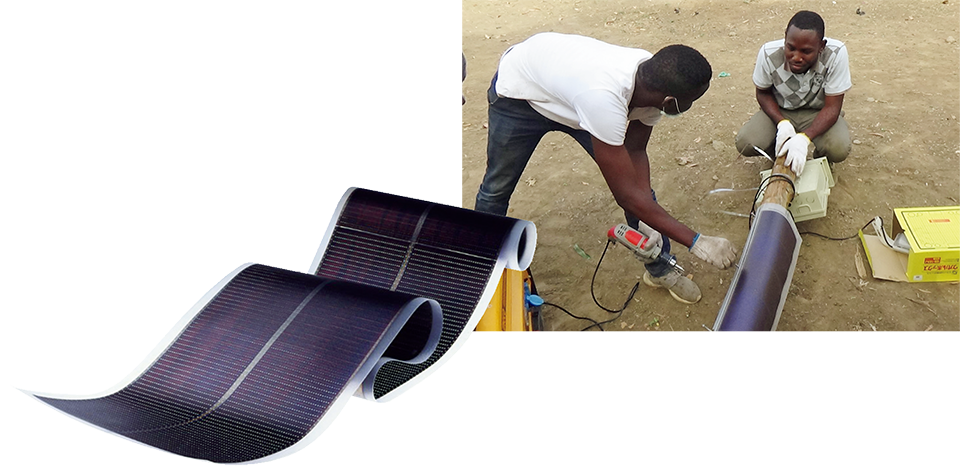
Pictured left is a flexible solar sheet. Streetlights with such sheets wrapped around their poles not only introduce light to areas that previously lacked electricity, but also play a part in improving security there.
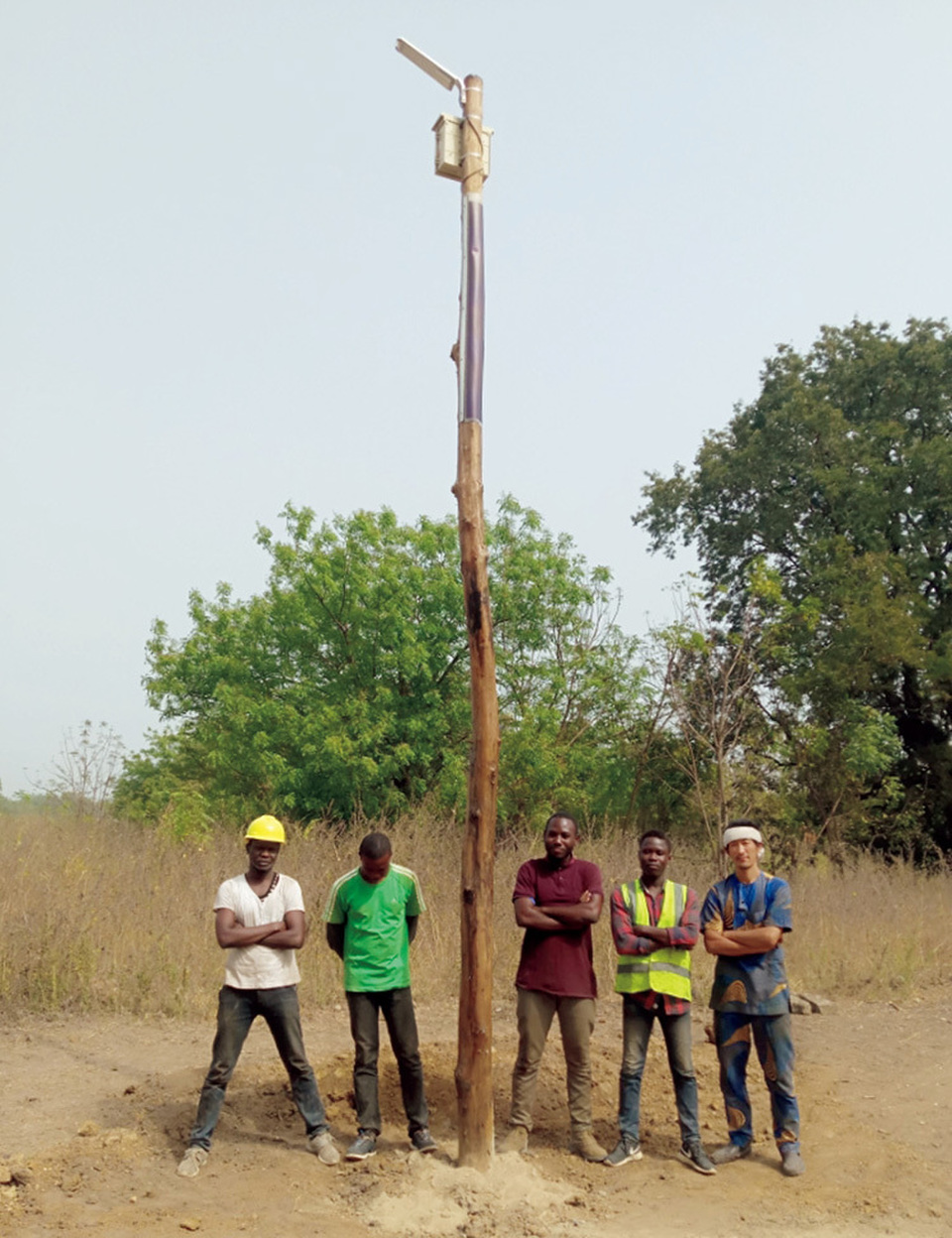
Unperturbed, Kawaguchi took his product overseas to Africa, where he was convinced that there would be solid demand. Africa does not suffer from typhoons or hurricanes, and the company’s solar sheets can be installed even on houses with tin or thatched roofs. In Nigeria, the sheets have provided lighting for schools, clinics, and police stations, as well as for streetlights. Not only has the lighting helped to improve security at night, but it has also created lighted areas underneath where people can gather together at night to sell their wares. “People were delighted that their villages had come to life,” says Kawaguchi, with a sense of fulfillment.
Since then, the company has extended its support to 10 or so other African countries—including Burkina Faso, Benin, and Rwanda—bringing electricity to schools, orphanages, refugee camps, and other venues. In 2019, an association known as Good on Roofs was established to provide wider support more quickly, with a novel scheme launched to support electrification in Africa by generating more funds through power-purchase agreements in Japan.
In this scheme, companies in Japan that are willing to have their roof space utilized install solar panels on their roofs without incurring any charges. Instead, they are paid rent for their roof space, a portion of which is returned as a donation for electrification projects in Africa. The participating companies can benefit by taking advantage of renewable energy without any initial investment while helping to support developing countries.
The next challenge for Kawaguchi is to bring electricity into African homes with children. The plan currently under development is to charge portable lanterns during the day via solar panels that are installed on school roofs, then to have the schoolchildren take the lanterns back home with them at the end of the school day. “Education makes a country. Having these lanterns will motivate parents to encourage their children to go to school,” remarks Kawaguchi.
The electrification rate of rural areas in the sub-Saharan region is only about 30%, and Good on Roofs’ mission is to boost that figure to 50%. Flexible solar sheets, an idea born of a specialist roof constructor in Japan are thus helping to light up Africa’s future.
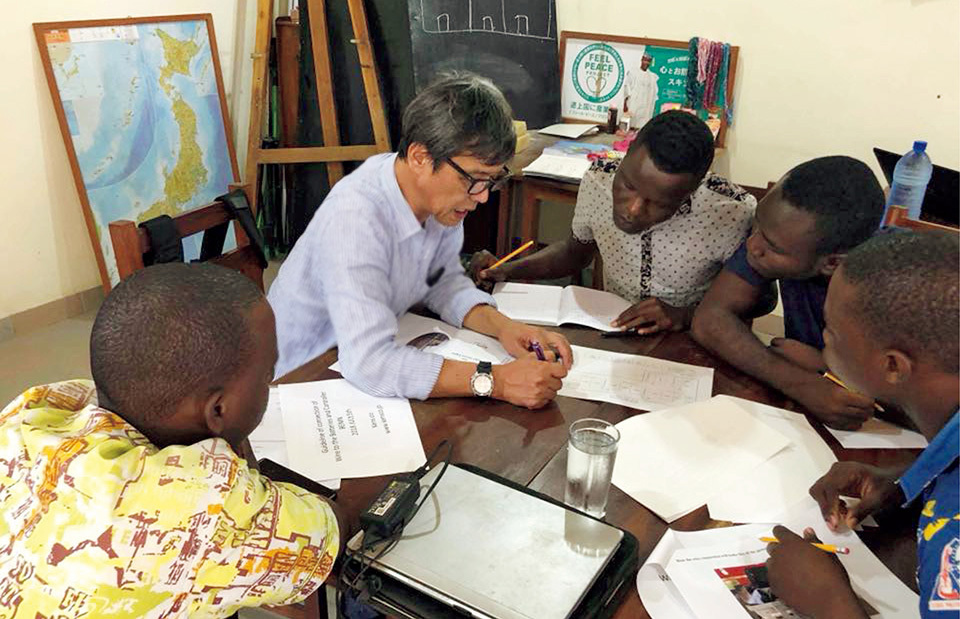
In Benin, Kawaguchi (second from left) discusses the electrification of schools and the installation of streetlights in villages.

























